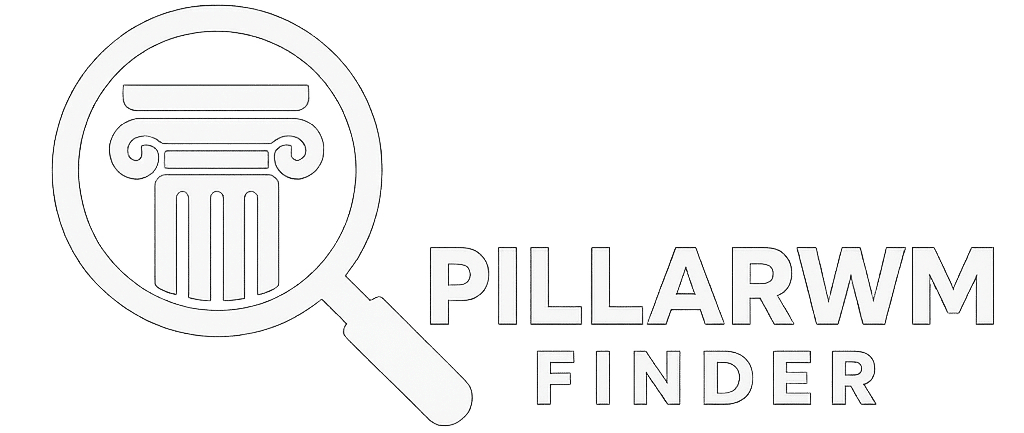In today’s complex financial environment, the need for objective, well-informed financial planning is growing—especially among individuals seeking a financial advisor near them. Fiduciary financial advisors are distinct in that they are legally obligated to act in their clients’ best interests, offering planning that is free from product-driven conflicts.
This article serves as a comprehensive resource for individuals looking to connect with a fiduciary financial advisor, outlining how to locate qualified professionals in your area and what types of services they typically offer.
Table of Contents
- What is a Fiduciary Financial Advisor?
- The exploration of fiduciary financial advisors is a fast-growing financial trend in the United States.
- Guidance on Locating the Ideal Financial Advisor in Your Vicinity
- What To Look For In a Financial Advisor
- Finding a Financial Planner Near Me
What is a Fiduciary Financial Advisor?

How can you be confident that a financial advisor near you is truly acting in your best interest? Understanding what it means to be a fiduciary is an essential first step.
A fiduciary financial advisor is legally obligated to place the client’s interests ahead of their own. This includes disclosing any potential conflicts of interest and resolving them in favor of the client. Fiduciaries must avoid using a client’s assets in ways that benefit themselves or their firm.
However, the distinction between fiduciary and non-fiduciary advisors can be blurred, especially when dealing with professionals who are dually registered as both investment advisors and brokers. This dual registration allows them to act as fiduciaries when developing a financial plan, but then shift to a lower “best interest” standard when selling financial products.
This is why it’s important to understand whether an advisor is consistently acting under a fiduciary obligation. Confirming this can help you determine if their advice is aligned with your financial goals or if it may be influenced by commissions or sales incentives.
The following sections will help you identify whether a financial advisor is acting as a fiduciary and how to find professionals who meet that standard in your area.
The exploration of fiduciary financial advisors is a fast-growing financial trend in the United States.

A local financial advisor—or fiduciary—may be recommended by someone within your trusted network. Unlike online directories, where competition can be unclear and information varies, personal referrals offer firsthand insight. However, even with referrals, it’s important to confirm whether the advisor is truly operating under a fiduciary standard. This legal obligation ensures they act in your best interest and provide financial planning support that prioritizes your goals, not sales incentives.
Consult Friends, Family Members, or Colleagues for a Reputable Fiduciary
The search for a fiduciary financial advisor often starts with your immediate network. Ask friends, family, or coworkers if they’ve worked with someone they would recommend.
While personal endorsements can offer trust and context, not every recommended advisor will necessarily be a fiduciary. Request specific feedback about their experience, communication style, and the nature of the advice they received. This helps you assess whether the advisor’s approach aligns with your expectations.
Once you’ve identified potential advisors, verify their fiduciary status. Ask directly if they are registered as fiduciaries and what steps they take to avoid conflicts of interest. A fiduciary advisor should be able to explain how they uphold their legal duty to act in your best interest and how they handle situations that might present competing incentives.
Verifying a Financial Advisory Firm’s Fiduciary Status
In today’s digital environment, verifying whether an advisor is a Registered Investment Advisor (RIA) and operates under fiduciary standards is easier than ever. Tools like the SEC’s Investment Adviser Public Disclosure website and NAPFA’s advisor directory can help confirm whether an advisor meets fiduciary requirements.
Here are two reliable online tools to assist in your search:
NAPFA (The National Association of Personal Financial Advisors):
NAPFA.org offers a searchable database of fee-only financial advisors who commit to a fiduciary standard. These advisors do not accept commissions and are required to act in the client’s best interest. NAPFA also promotes financial literacy and helps users understand how fee-only planning works. You can visit napfa.org to explore their directory.
SEC Adviser Database:
The SEC’s Investment Adviser Public Disclosure tool allows users to search for advisory firms registered as RIAs. Each firm must file a Form ADV, which includes details about services offered, fee structures, and fiduciary status. This public filing helps you assess whether a firm adheres to fiduciary principles. You can access this tool at adviserinfo.sec.gov.
Guidance on Locating the Ideal Financial Advisor in Your Vicinity

Online directories and research tools are excellent for identifying potential advisors, but your role in the evaluation process remains essential. The following suggestions can help you find a financial advisor near you who aligns with your specific needs and goals.
Understand Your Requirements and Objectives

Financial advisors may specialize in different areas, including general planning, investment strategy, retirement income planning, tax strategies, or estate planning. To narrow your search effectively, take time to define your specific financial objectives.
Make a list of the services you’re seeking—whether it’s long-term retirement planning, managing real estate sales proceeds, or improving your investment allocation. By doing this, you can better focus your advisor search and consult only with professionals whose expertise matches your priorities.
Organize Your Financial Information

Before meeting with any advisor, prepare a high-level overview of your financial picture. This should include assets, income, debts, expenses, and, where relevant, recent tax returns. You may also wish to summarize your retirement and investment account balances, along with any financial concerns you’re hoping to address.
Having this information ready allows the advisor to better understand your situation and provide more tailored recommendations. It also helps you evaluate whether their proposed planning strategies are appropriate and affordable for your circumstances.
Verify the Advisor’s Credentials

Research the advisor’s professional background, including certifications and public disciplinary history. For example, you can use databases maintained by the SEC or FINRA to review regulatory filings and employment history. Look for any past regulatory actions or misconduct, and confirm whether the advisor holds credentials such as Certified Financial Planner (CFP®) or operates under a fiduciary standard.
Understanding their professional history can help you make a more informed decision and avoid potential red flags.
Ask Questions

When meeting with a potential advisor, come prepared with questions that cover a range of topics—from their planning philosophy and compensation model to their approach to client communication.
Pay attention not only to the content of their responses but also to how they engage with your questions. Are they clear, patient, and responsive? Do they explain concepts in a way that matches your financial knowledge and comfort level?
An advisor’s communication style can be just as important as their credentials. Look for someone who takes the time to understand your concerns and offers insight without pressure. This helps ensure that the relationship is collaborative and that the financial plan you develop together is built on mutual understanding.
What To Look For In a Financial Advisor

Approach to Service
Choosing a financial advisor is a personal decision, and preferences often vary based on individual values and comfort levels. Some individuals may seek advisors who share similar backgrounds or experiences—such as cultural, generational, or community-based perspectives—as these factors can influence the advisory relationship and communication style.
Payment Framework
Understanding how an advisor is compensated is key to evaluating potential conflicts of interest. If you’re looking for advice that prioritizes your financial goals, consider working with a fee-only financial advisor. These advisors are compensated directly by clients, not through product commissions. As a result, they are more likely to provide planning recommendations that align with your needs rather than being influenced by sales incentives. A fee-only model may offer a clearer structure for clients seeking objective financial advice.
Geographical Considerations
While some clients value working with a local financial advisor, physical proximity is no longer essential. With video conferencing and secure digital tools, many advisors offer virtual services that mirror the experience of in-person meetings. This flexibility allows you to prioritize advisor qualifications, service offerings, and planning approach over geographic location, choosing the best financial advisor for your goals, regardless of where they are based.
Traits of the Advisor
Advisors vary in terms of experience, communication style, and generational alignment. Some investors prioritize deep industry experience and technical knowledge, while others may feel more comfortable working with an advisor closer to their own age or stage of life. These personal factors—such as an advisor’s age, credentials, or familiarity with technology—can impact how well the advisor understands your needs and how effectively you communicate throughout the planning process.
Finding a Financial Planner Near Me

While financial planners are not required to hold a specific license to practice, many clients look for professionals who have earned the Certified Financial Planner (CFP®) designation. This credential, awarded by the CFP Board, reflects a high level of education, experience, and ethical commitment. CFP® professionals must pass a rigorous examination and adhere to standards related to integrity, fairness, and client-focused planning.
Although not mandatory, credentials like the CFP® designation can be helpful when evaluating a planner’s qualifications, especially if you’re seeking someone who prioritizes transparency and professional responsibility. Experience, educational background, and whether an advisor operates locally or nationally should all factor into your selection process.
Some CFP® professionals serve clients within specific regions, while others offer national or virtual services. Regardless of location, researching an advisor’s credentials can help you determine whether their approach aligns with your financial priorities and planning needs.
Evaluating certifications, background, and planning philosophy can lead you to a financial planner who offers reliable, ethical, and informed advice, aimed at supporting your long-term financial well-being.
Ready to take the next step in your search? Start exploring with these tools:
Frequently Asked Questions
Are there online resources to find fiduciary financial advisors near me?
Yes. Several independent websites can help you locate fiduciary financial advisors in your area. Resources such as the National Association of Personal Financial Advisors (NAPFA) and the U.S. Securities and Exchange Commission (SEC) adviser search tool provide directories of professionals who meet fiduciary standards. These platforms allow you to search based on location, services offered, and credentials.
What kind of responsibilities come with investment management?
Investment or portfolio management involves building and maintaining a strategy aligned with your financial goals, risk tolerance, and time horizon. This includes selecting appropriate assets, monitoring performance, adjusting allocations in response to market conditions, and communicating potential risks or opportunities to the investor. Advisors managing portfolios are also responsible for rebalancing and staying informed about market trends.
How does an authorized investment advisor stand out from a broker, and what is their joint responsibility?
A Registered Investment Advisor (RIA) operates under a fiduciary standard and typically offers planning and investment advice without selling specific products for commission. In contrast, broker-dealers are licensed to buy and sell securities and may earn commissions from transactions. Some professionals are dually registered and may perform both roles, so it’s important to ask how an advisor is compensated and when they are acting under fiduciary obligations.
What are the fiduciary charges for the funds?
Fiduciary advisors often charge fees based on assets under management (AUM), typically ranging from 0.5% to 1.5% annually. Larger portfolios—such as those above $10 million—may qualify for lower rates within that range. Some advisors may instead use a flat-fee model, such as a set annual fee for managing a portfolio, which can vary depending on complexity and services provided.
What sets a fiduciary apart from a financial advisor?
The term “financial advisor” is broad and can refer to professionals with varying responsibilities and compensation models. A fiduciary, however, is legally obligated to act in the client’s best interest at all times. Not all financial advisors are fiduciaries, so it’s important to confirm whether a potential advisor is required to follow fiduciary standards throughout the relationship.

